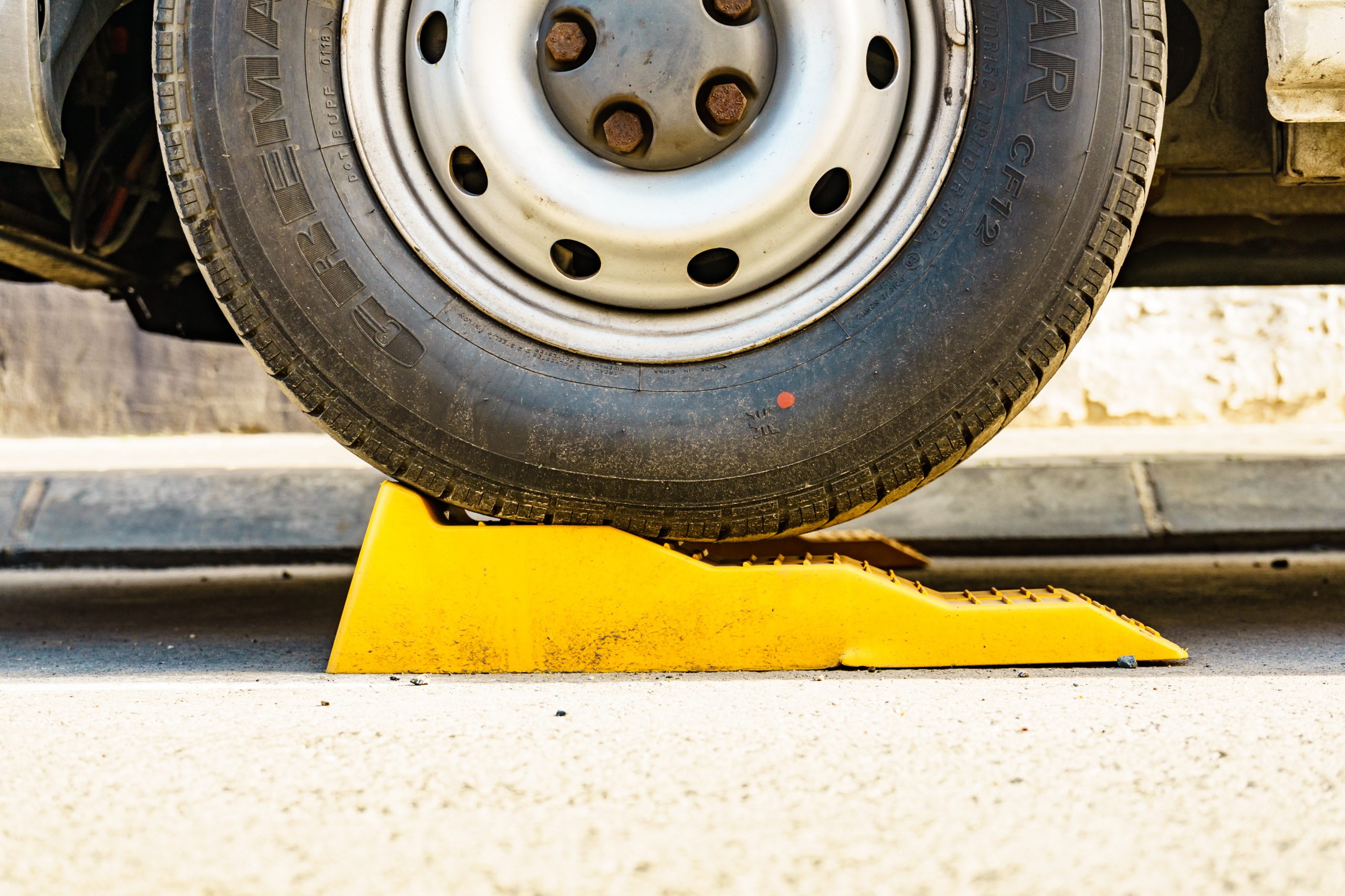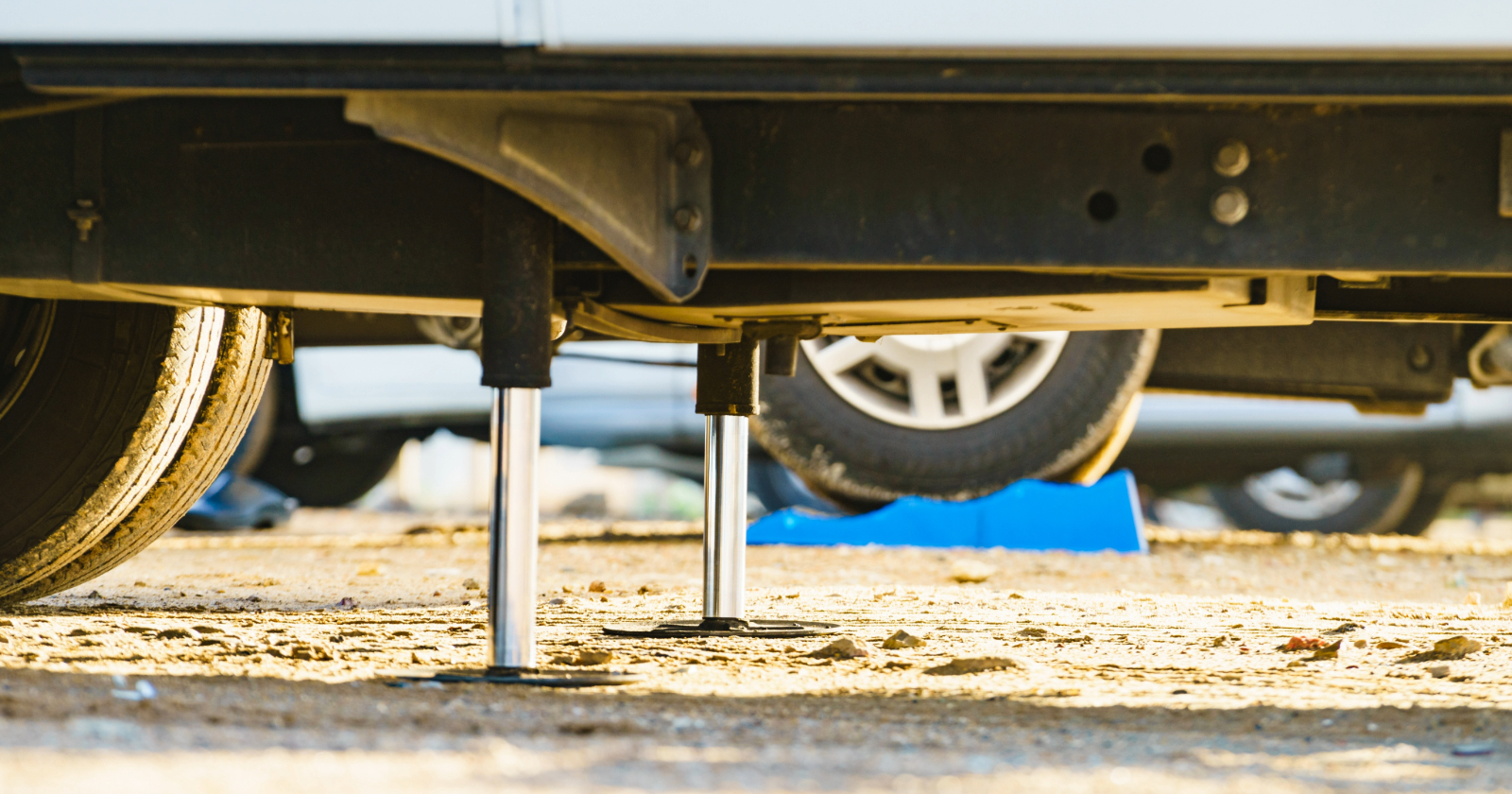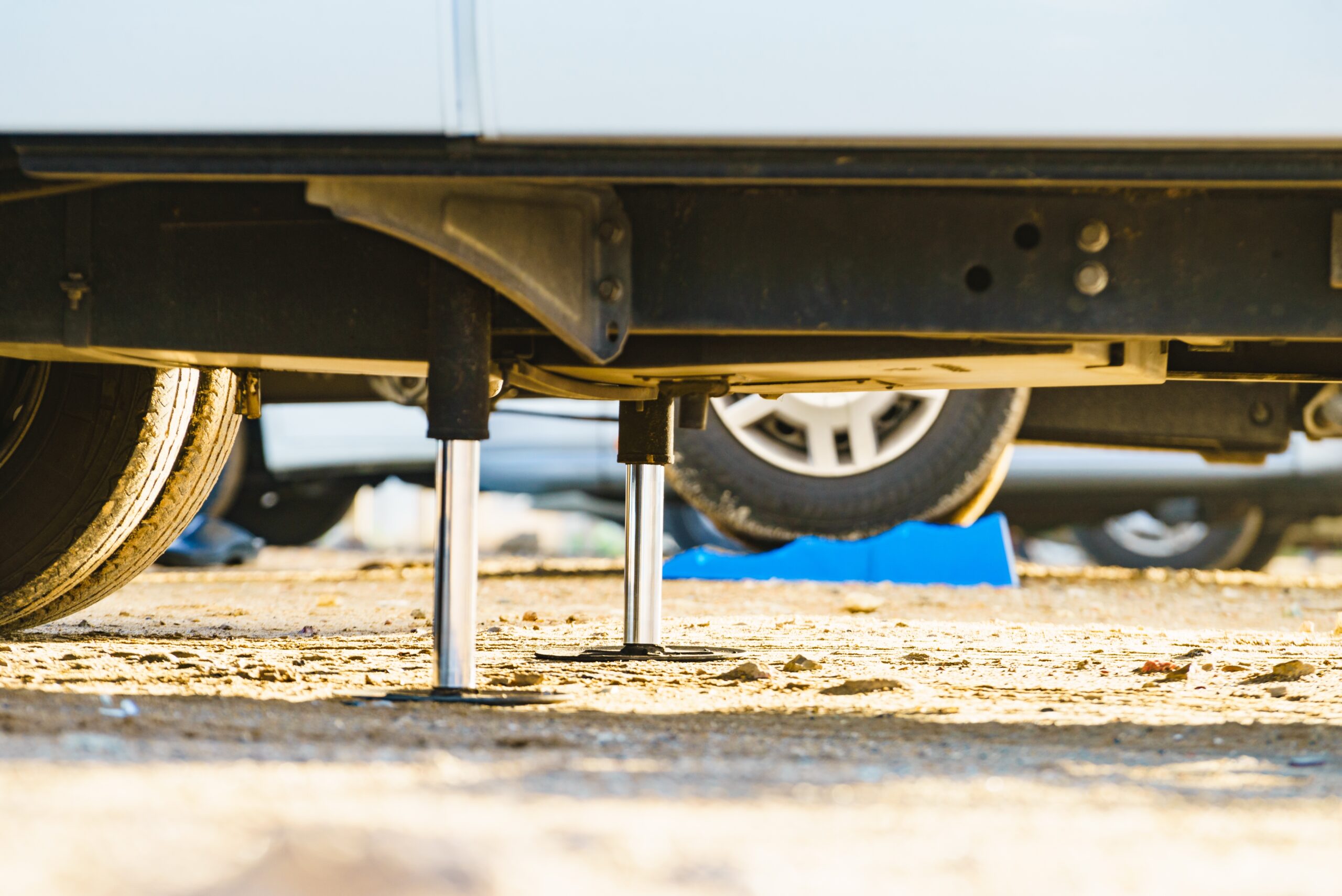
Do You Really Need RV Leveling Blocks?
RV leveling blocks are a must-have item for every new RV owner. Whether you have a travel trailer, fifth wheel, or big motorhome, it’s a good idea to carry RV leveling blocks wherever you travel.
Why do you need RV leveling blocks?
Number one, your RV needs to be relatively level to operate properly. Being out of level can impact the operation of an absorption refrigerator found on most RVs, plumbing, the operation of the slide-outs and more.
Second, being level reduces stress to door frames, cupboards, windows, and even the chassis itself.
The third reason is personal comfort, as nobody wants to roll out of bed at night, sleep with their head at the low end of the bed, or have to steady oneself by holding on to furniture while walking or standing.
Now that you know why it is important to level your RV, let’s look at the options for doing so. Camping only in level spaces is one option, but in the real world this is not a realistic expectation. Driving the RV up onto RV leveling blocks is the solution for most RVers.
Do you need RV leveling blocks if your RV has automatic leveling?
There are many new RVs with automatic levelers that level the RV with the push of a button. You would think that RVs equipped with automatic levelers would negate the need for RV leveling blocks, but that is not the case as they are not always up to the task.
You may need to lift the drive wheels of a motorhome so high to level the RV that they lose contact with the ground. If the wheels are lifted off the ground, there is nothing to keep the motorhome from rolling as the parking brake and parking pin in the transmission are tied only to the drive wheels. In this case, you would want to place RV leveling blocks under the wheels so they still bear enough weight to keep the motorhome from rolling.
Automatic levelers don’t have enough power to lift the RV high enough to achieve level. In this case, you may need to place RV leveling blocks under the automatic levelers to reduce the amount of travel needed to level the RV.
Even with automatic levelers, some RVs still need the tires/axles supported to prevent the frame from sagging which can cause doors to bind and other problems.
One consideration to keep in mind when shopping for RV leveling blocks is finding blocks that are wide enough to fully support the width of the tire.
“The tire-tread width should be fully supported, without a portion of the tread hanging over and bulging down past the leveling device surface. Use of a support that is too narrow can damage the tire tread or sidewall.”
Jeff Johnston
Types of RV leveling blocks
Wood blocks
For years RVers have utilized short lengths of lumber like 2” x 4” and 2” x 6” to serve as RV leveling blocks. They are inexpensive and won’t lead to sleepless nights if you forget and leave them behind when breaking camp. However, being wood, they are prone to rotting, splitting, and soaking up rain and mud.
Stacking Plastic Blocks
These RV leveling blocks are lightweight, can be stacked or snapped together to accommodate various leveling needs, and they’re easy to store. The down side is that their waffle-like grid bottom can sink into soft surfaces trapping dirt and mud. You can find them on Amazon for about $50.
Plastic Ramps
Some RV leveling blocks are wedge shaped and the farther you drive up the wedge, the higher your RV is raised. Others, like the curved Anderson levelers, pivot as the RV tire is driven up, lifting the tire farther off the ground in the process.
Below is a short video on the best RV leveling blocks that might help you decide which type is right for you.
Continue reading:



